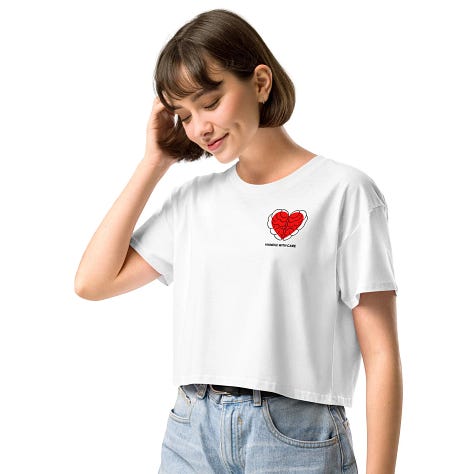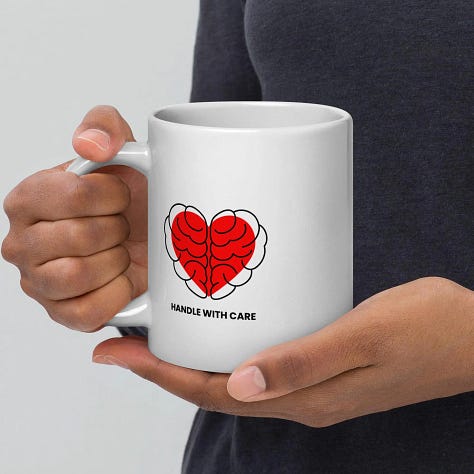Groomed to Be Grateful: The Normalization of Sexualization and Control
How Society Taught Us to See Predation as a Compliment

When I was 16, sitting in a Portuguese class in Brazil, my teacher made a statement that has lingered in my mind ever since: "It’s not rape if he’s good looking." I don’t recall the exact context of the conversation, only that we were doing a writing activity, and a student asked a question. That was the teacher’s response. And just like that, the entire class laughed. Including me.
At the time, it made sense to me. Who wouldn’t consider it a privilege, a compliment even, for a "handsome-looking" man to want you so badly that he wouldn’t take no for an answer? But now, I see that thought process for what it is—terrifying. How terrifying is it that a "handsome-looking" man, someone who has the option to engage with people, form real connections, and have consensual sex, would instead choose to force themselves onto someone? Because, to them, the act itself is about power and entitlement rather than attraction or connection.
Looking back, I see how deeply this relates to my culture. In Brazil, and in many parts of the world, being desired by men—especially older men—is seen as a compliment. When I was 13, I remember being at a Carnaval gathering with my family, where a friend of the family, who was in his early 20s, was hooking up with my 14-year-old cousin. I recall him saying, in front of everyone, that next year would be my turn. I didn’t find him attractive, nor did I want his attention in that way, but I still felt excited and honored. A grown man was interested in me. I considered myself mature. It felt fine.
And that was the mentality I carried for most of my life, until I started unpacking how predatory it truly was. These men weren’t interested in me as a person; they were interested in my innocence, in my lack of experience, in their ability to manipulate and mold me.
This mindset is so deeply ingrained that even as I began to question it, the world around me kept trying to reinforce it. When I recently told my mom that I now feel uncomfortable knowing my first boyfriend and eventual husband was 22 when I had just turned 17, she dismissed my concerns. She told me that it wasn’t a big deal because when she was 13, she had a long-term boyfriend who was 19. They had even talked about getting engaged and married before she turned 18.
I think about 13-year-old me versus 19-year-old me, and I see no possible way those two people could have been in a truly equal relationship. One was barely entering their teenage years, while the other was already an adult, with life experience and emotional maturity that far outweighed the other. There was no way for that dynamic to exist without a significant imbalance of power. And yet, these relationships were not just accepted—they were encouraged, romanticized in novelas and movies, and upheld as a societal norm.
Women are sexualized the moment they are recognized as beautiful, and from then on, they carry the burden of maintaining that beauty while fulfilling every other expectation placed upon them. It becomes their responsibility to navigate a world where desirability is power but also a weapon used against them.
We need to start having real conversations about consent. These discussions shouldn’t just happen in private, within families—schools, workplaces, and public institutions need to take part as well. Consent education should be part of the curriculum, just like math or science. We need to create a society where women aren’t props in a man’s world but autonomous individuals with full control over their bodies and choices.
We need to build safe spaces—cities, schools, workplaces—where women don’t have to clutch their keys between their fingers while walking home at night, just in case they have to fight back. We need doctors who respect bodily autonomy, workplaces that don’t tolerate harassment, and media that stops glorifying predatory relationships as romance.
And most of all, I want young people to know this: If an older person’s attention makes you feel uncomfortable, even if everyone around you says it should be a compliment, that feeling is valid. Trust it. Your instincts are telling you something that society has tried to silence. Listen to them.
Because no matter how good-looking someone is, consent is never optional.
💡 Check out my Etsy shop, Mental Nesting! Thoughtfully designed mental health-inspired mugs, tees, and more to inspire self-care and connection. 👉 Visit here










